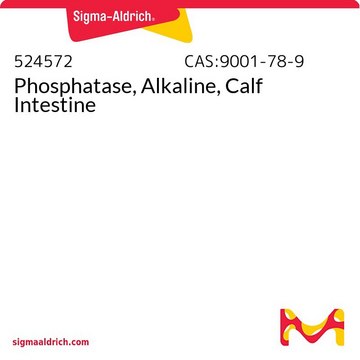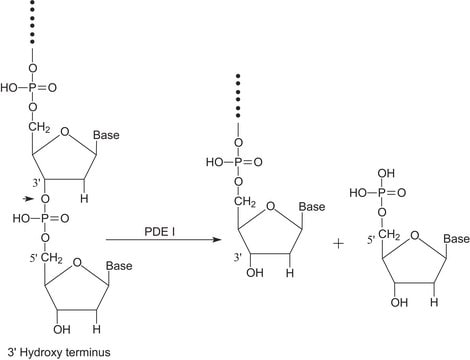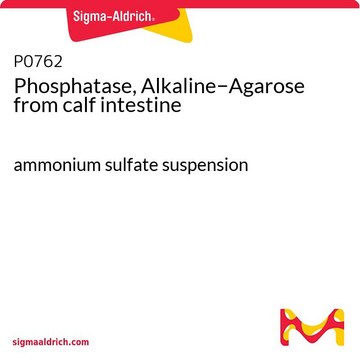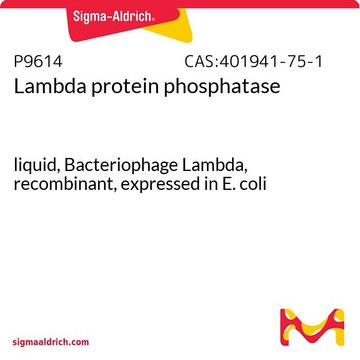P4978
Phosphatase, Alkaline from calf intestine
buffered aqueous glycerol solution
Sinónimos:
CIAP, CIP, Orthophosphoric-monoester phosphohydrolase (alkaline optimum)
About This Item
Productos recomendados
grado
for molecular biology
formulario
buffered aqueous glycerol solution
mol peso
~80 kDa
concentración
≥10,000 units/mL
Nº de acceso UniProt
actividad extraña
DNase, RNase, none detected
Condiciones de envío
wet ice
temp. de almacenamiento
−20°C
Información sobre el gen
cow ... ALPI(280993)
¿Está buscando productos similares? Visita Guía de comparación de productos
Descripción general
Aplicación
Componentes
Definición de unidad
Otras notas
Producto relacionado
inhibidor
sustrato
Código de clase de almacenamiento
10 - Combustible liquids
Clase de riesgo para el agua (WGK)
WGK 1
Punto de inflamabilidad (°F)
Not applicable
Punto de inflamabilidad (°C)
Not applicable
Certificados de análisis (COA)
Busque Certificados de análisis (COA) introduciendo el número de lote del producto. Los números de lote se encuentran en la etiqueta del producto después de las palabras «Lot» o «Batch»
¿Ya tiene este producto?
Encuentre la documentación para los productos que ha comprado recientemente en la Biblioteca de documentos.
Los clientes también vieron
Protocolos
CIP is used to remove 5’-phosphate groups from DNA, RNA and both ribo and deoxy-ribonucleoside triphosphates. Detailed protocol on how to dephosphorylate DNA.
Enzymatic Assay of Alkaline Phosphatase, Diethanolamine Assay (EC 3. 1. 3. 1)
Nuestro equipo de científicos tiene experiencia en todas las áreas de investigación: Ciencias de la vida, Ciencia de los materiales, Síntesis química, Cromatografía, Analítica y muchas otras.
Póngase en contacto con el Servicio técnico








